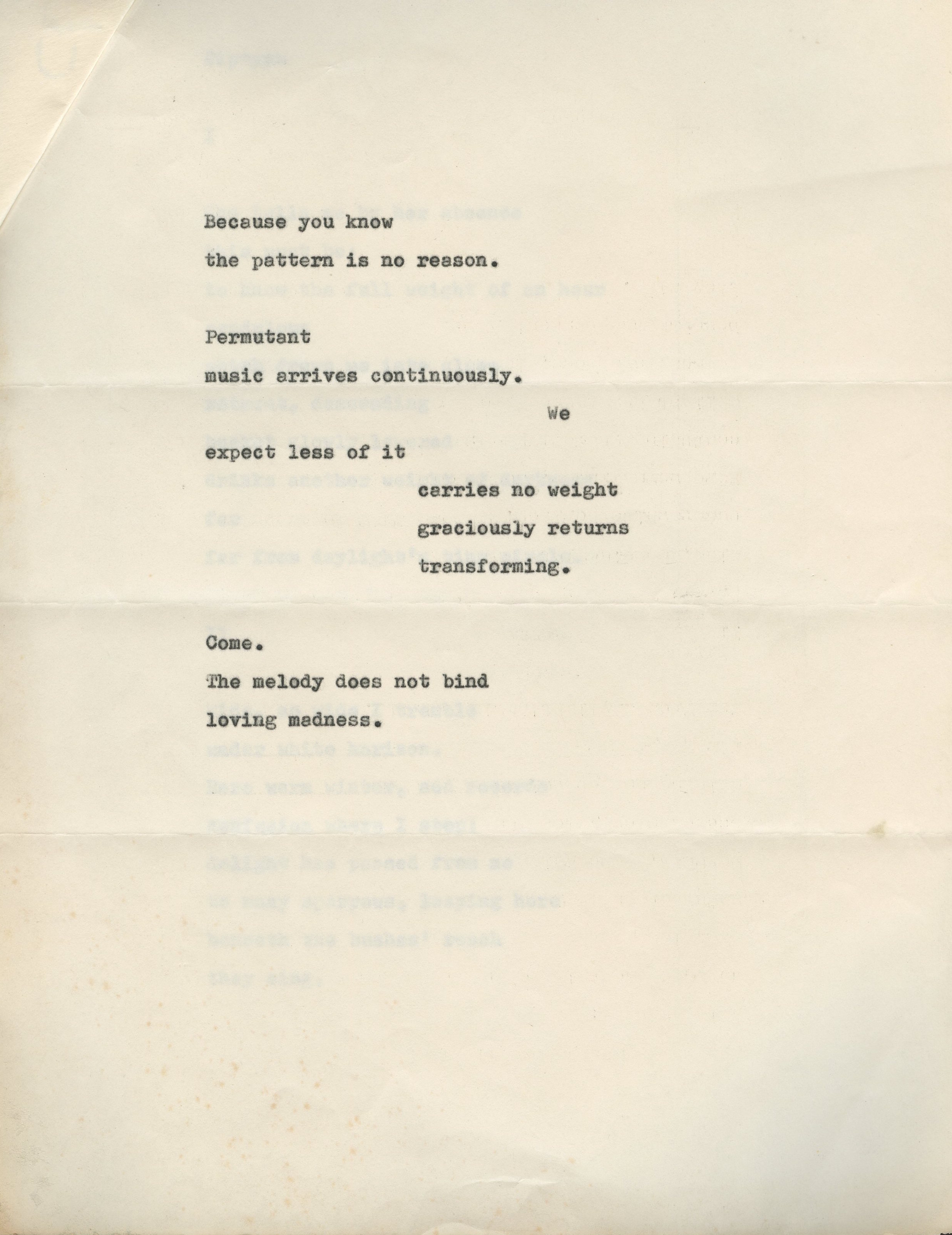…
I knew Gil Ott when I lived in Philadelphia in the 1970s. He was hosting a poetry program on the radio at the University of Pennsylvania on Saturdays that featured both local and visiting poets. Philly had a vibrant even seminal poetry scene back then and there were always poets coming and going. One time Gil hosted me. Because I used the word piss in a poem I read, she drank from the pissful river, Gil got kicked off the air for obscenity, which seems hard to believe, but there it is. Pissful, a word I’d made up, you’d think would have eluded censors, but someone was listening. Who knows? Perhaps U of P was already gunning for him. “I was tired of it anyway,” Gil said. Around that time was when his kidneys began to fail him. But Gil, until his death in 2004, coordinated readings and performances at the Painted Bride, operated his press, Singing Horse, and published his magazine, Paper Air, introducing poets like Jackson MacLow, Toby Olson, Ron Silliman, and John Taggart to new audiences.
When I knew Gil in the 1970s, performance was the thing, and he and I would hang out in back of Independence Hall in the park around noon reading poems through a megaphone to tourists and office workers who’d come to eat their lunches. I often read Keats, Gil Apollinaire. And stuff of our own of course. Although this thought occurs to me now not then, I have to smile because I think Gil’s motive might not only have been enlightenment, but a chance to find a girlfriend. For some reason at lunchtime at Independence Hall the park was full of women, secretaries back then. We certainly were young and love was in the air. Looking back I certainly hope that his endeavors did conjure up a kiss.
I don’t remember when Gil gave me Poems, 1977 – 78; I just found it in a box under a bed. I know when I was leaving for a trip to Mexico the following year, he gave me a small collection of poems called Corn, which I took along with me, and brought back, and kept, but now can’t find. I have looked everywhere although I know they are here somewhere. Until the day when Corn appears here are Poems.
…

…

…

…

…

…

…

…
